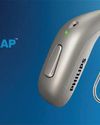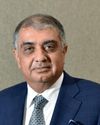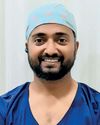
AI has revolutionized the healthcare industry in the last few years. As per the reports, the global AI in healthcare market is expected to reach $187.95 billion in the next six years. AI applications are increasingly being used for early detection and diagnosis of diseases, remote monitoring and diagnosis of patients, undertaking administrative tasks, making treatment decisions based on predictive analysis, and research and drug discovery.
In India, state governments have adopted AI-enabled applications to improve healthcare. For instance, in 2020, the Karnataka government launched AI driven pods for containing contagious diseases such as COVID-19. This article discusses some of the key legal issues that arise from the use of AI in the healthcare sector.
CLASSIFICATION AS A MEDICAL DEVICE
Since AI-driven software is equipped with algorithms designed to constantly learn from real-world applications, its recent use has increased significantly. Depending on the intended purposes for use, such software may qualify as a ‘medical device’ under Indian law, attracting registration and compliance requirements. For instance, if the software is intended to be used for diagnosis, prevention, monitoring, treatment, or alleviation of a disease, disorder, injury, or disability, or for the investigation, replacement or modification or support of the anatomy or of a physiological process, the underlying software may qualify as a medical device.
This story is from the August 2024 edition of Healthcare Radius.
Start your 7-day Magzter GOLD free trial to access thousands of curated premium stories, and 9,000+ magazines and newspapers.
Already a subscriber ? Sign In
This story is from the August 2024 edition of Healthcare Radius.
Start your 7-day Magzter GOLD free trial to access thousands of curated premium stories, and 9,000+ magazines and newspapers.
Already a subscriber? Sign In

SpOvum launches Al-powered platform to boost patient support in assisted reproductive technology
The platform offers personalized information based on individual ART-related concerns, drawing from reliable, indexed medical guides to provide fact-based, tailored answers.

Hearzap launches Al-powered Philips HearLink 50 miniRITE
The company is projected to expand across 250 stores by 2026 and envisions accessible and affordable hearing care across the country.

Red.Health launches Al-driven medical emergency platform
In medical emergencies, every second matters but the current emergency medical systems face many challenges

OmniActive acquires ENovate Biolife
The company aims to double its top line, targeting Rs 2,000 crores within the next 5 to 6 years from the present Rs 1,000 crores.

5-year-old fish bone removed from 61-year-old's abdomen
The patient had previously undergone an endoscopic procedure five years ago at another hospital to remove a fishbone, but the current one had likely been missed at that time.

Large brain aneurysm treated using advanced stenting method
Aneurysm is a bulge or ballooning in a blood vessel of the brain. It’s often described as looking like a berry hanging on a stem.

37-year-old pregnant woman treated for aggressive breast cancer
Given the complexity of her condition, the team worked closely to develop a treatment plan that would balance the needs of both mother and babies.

45-year-old treated with robotic-assisted hernia surgery
This surgery marks a significant milestone for Park Hospital, which has successfully completed 50 robotic-assisted procedures.

Healthium Medtech, Healthcare Sector Skill Council (HSSC) sign MoU to boost skill development in Indian healthcare
Healthium and HSSC will collaborate to deliver training programs aimed at skilling, reskilling and upskilling healthcare workers, enabling them to address evolving challenges in the field.

Advanced ambulance fleet launched for Maharashtra's emergency services
The announcement comes amid ongoing bilateral meetings between Prime Minister Narendra Modi and Prime Minister Pedro Sanchéz Perez Castejon of Spain.